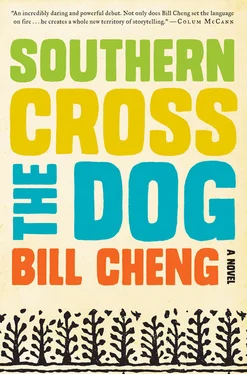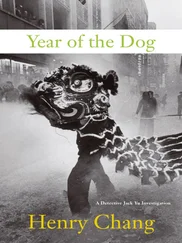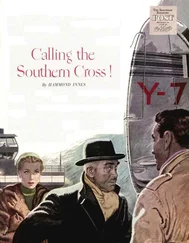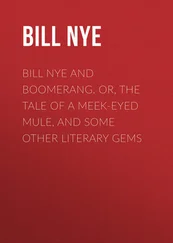There was a crack and the burn of powder. The gator twisted. I stood myself up and pushed through the pain. I kept running.
He chased me to the cabin and I fell on the porch. I turned and saw the man coming through the mist — not Stuckey but shorter, younger. His face was all pinched and his cheeks puffed as he sucked in the air. He carried a gunnysack in one hand and my cape in the other. I could see the revolver swinging low from his belt.
I cried and I covered my face, pleading No no no no.
Dora, he said. My God.
And it wasn’t till he pulled my hands from my face and said Dora, Dora, look at me just look at me — with his hands on my cheek, not rough but holding it — it was then that I saw his face, and except for the mustache and the way the skin had gone a little long under the eyes that I saw him and knew the voice. My God, he said. It’s me. It’s G.D.
Iscraped out the urn with a fork and he told me, Dora, no, please let me look at you, and I said, Coffee? but he took my hands and said, Dora, don’t you know who I am? Then I laughed and said, ’Course I know you, G.D. We used to go and play Sally Water. And his fingers were brittle so I pulled away and thought maybe he’d come apart like icicles. So I lit the stove and I made coffee and he stood with his Adam’s apple going up and down.
He tried to talk but it ain’t nice manners to talk when I’m making the coffee, what if I overburn it? So I didn’t say nothing. I tended the flame and sniffed the spout every now and again. I poured two cups and spooned the sugar. One in mine, and one, two, three for G.D. on account of I like the sound, one two three for G.D.
He sat on the couch, fumbling with his hands, working one finger over the other. His gloves were set on his lap. G.D. looked like I remembered excepting those little hooked hairs on his lip and that he’d gone a little lean at the neck and cheek and eyes. He still had that big wide mouth, and that fleshy stub of a nose. I handed him his cup, and he couldn’t stand to hold it. He put it down on the floor.
What are you doing here? he asked me.
That’s rude.
Stuckey know you’re here?
’Course he does. Don’t ask silly questions.
He stood up and tipped the cup over with his boot.
All that coffee went all over the floor and I scolded him.
Oh! Look what you did!
A pool of it was thinning out, going into the wood. I went to get a rag to soak it up. I pressed the rag deep, tried to draw it from the grain, but it wasn’t any good. It wouldn’t ever come out.
Look at me, Dora, he said, and he took me by my shoulders. I slapped him across the cheek. He stood there stunned. I’m sorry, he said. I ragged up the rest of the coffee, then went to refill his cup. G.D. looked at the window and touched his hands to his ribs, above the pearl inlay of his pistol. He stared for a moment, then turned back to me.
How long you been out here?
Then I asked him if he remembered that time him and Missy Baker went behind the church and Missy told the girls how he showed her his crawdaddy.
Dora, listen to me. How long you been here?
And I told him I didn’t know, how it could’ve been weeks or months. The days all ran together.
Then I asked him if he remembered when the girls teased him and made little pinch claws at him. Then I showed him with my thumb and the pointy one going pinch pinch pinch, and remember how he got so fussed he went straight home and wouldn’t play with us for two weeks.
Stop it! he said. You shouldn’t be here. It ain’t safe.
Then I smiled and patted his arm. I’m only teasing, I said. I won’t pinch you no more.
He took my hands gentle like, put them together, our four hands like they were waiting to catch something. We were squat down on the floor, me waiting for him to talk and him waiting for himself to say something. There was a click and we both turned to the front door.
Stuckey made a Stuckey shape in the doorway. His coat was wet and dripping, and his flannel was hung loose over his belt. He was very quiet, watching us, the air steaming around his lips. He stepped in and slid the bolt across the latch. He looked down at us.
You spilled coffee, he said.
I stood up.
G.D., he said. I see you’ve met Dora.
G.D. stood up slow. Been waiting on you.
I told you not to meet me here.
I got some things you’re going to want to see.
Stuckey touched his lip, thoughtfully. Any more coffee? Stuckey asked. Any not spilt on my floor?
I went into the kitchen to fetch another cup. When I came back in, both Stuckey and G.D. had their coats off and were sitting on the couch. G.D.’s sack was spread open between the two. G.D. started taking out the items: a brass candlestick holder, some forks and spoons and things, a little daguerreotype of a red-haired white woman. They haggled back and forth on prices.
I tended to the housework, dusting and sweeping, trying to be in the living room as near as I could. I refilled their cups, boiling up a new urn when we ran out. I looked at the coffee stain near where G.D. was sitting.
I got a fresh rag, then went on my hands and knees, my head bobbing. As I rubbed at the stain I could see G.D.’s gloves, lain flat across the couch arm. The cloth was frayed where the fingers ought to have been, with little flecks of dead leaves and bark caught in the gray wool. It looked like a pair of tiny chopped hands spread wide in waiting.
Stuckey picked up a rusted-up pocket watch and tossed it with the rest. You didn’t come into my home to show me this.
What, you’re not happy?
Don’t play games, G.D.
I didn’t look up, only at where the wood splintered, catching in the rag or my palms. My fingers pressed down hard, the pink under my nails going white. There was a long silence. Nobody moved.
Then finally G.D. took out a long silver pipe with etchings all on the body. Near the end was a little silver knob. He held it up with two hands. There were little gems, red and green and blue all over the body and when I looked closer, I could see they were eyes from some kind of snake. Stuckey took the pipe and rubbed the length on the sleeve of his flannel.
Where’d you get this?
Chinaman in the camps.
Stuckey brought the mouth end to his lips and blew through it. He plugged up the other end with a finger, then let the air punch through. Then he drew in. He tested the weight of it in his hands, turning it over and over, then moving a row of fingers down its etched scales.
How much?
Fifteen.
You’re a thief, G.D.
I can always give it back.
Okay. Fifteen.
Stuckey got up and fished out the small key and went to his room. G.D. looked at me. I started to say something but he clapped his hand across his mouth. When Stuckey came back, there was fifteen dollars in his hand.
G.D. packed up the things Stuckey didn’t want. They clanged together in the sack and he drew up the string tight, slinging it over his shoulder. Stuckey opened the front door. The cold air blew in and G.D. pulled his coat around him.
Always a pleasure, Pat.
Stuckey nodded, holding the door open.
Then Stuckey grabbed his arm. He pulled it down, forcing the hand beyond the grip on his holster. G.D. struggled a little but went limp when he looked into Stuckey’s face.
I like you, boy. We do good work together, he said.
He let go and G.D. straightened.
If you come to my home again, I’ll kill you.
G.D. smoothed out his sleeve. He looked at Stuckey then back at me, and he said, Good day, before he left.
I was still on the floor but I had already quit trying to clean. Stuckey picked up the pipe from the couch, walked past me and into his room. The door locked behind him.
G.D.’s gloves were still on the couch.
Читать дальше












